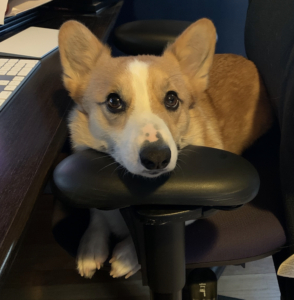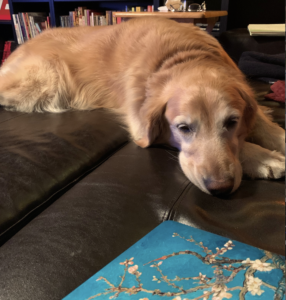 It’s surprisingly common to find remarks from writers to the effect of, “if you don’t hate what you’re writing, then it must not be any good.” In a world awash with bad advice for writers, this stands out as perhaps some of the worst. (Especially if what you’re writing is a novel.)
It’s surprisingly common to find remarks from writers to the effect of, “if you don’t hate what you’re writing, then it must not be any good.” In a world awash with bad advice for writers, this stands out as perhaps some of the worst. (Especially if what you’re writing is a novel.)
Writing a novel is a commitment. It will probably take years. The writing itself will likely take many months, and then there are revisions. A novel-in-progress is often likened to a child, which is a fair analogy. If it’s more like an irritating roommate, maybe things aren’t going to work out. The idea that throughout such an undertaking you should expect to feel powerful negative emotions about the thing you’re creating… no.
You do need a certain critical distance. Saying you love the work doesn’t mean you don’t want to see it improve. That’s what the revisions are for. Allow it to be flawed, and don’t hate it for its imperfections. Circle back and put in better words.
So, why would anyone say such a thing? Why would they want you to hate your work? They don’t want that. What’s really going on there is that the writing process is often frustrating. Especially if your goals are ambitious, it’s likely that the early drafts will not really work, and it’ll be hard not to feel discouraged about that. Many novices expect the perfect flowering of their thoughts to just land on the page. That’s not typical. A common mistake is trying to combine the modes for initial creation and fine-tuning, which puts you into a very stressful bind of not being able to please the internal editor.
If you find yourself genuinely hating what you’re working on, lay it aside. Put it in time-out and give yourself a break from it. Maybe it’s not what you should be trying to write. Maybe just move on. But maybe giving yourself some space will help you see its strengths and weaknesses objectively, in which case you might feel inspired about it again.
Another thing to reflect on is your process. If you’ve always been a pantser, and you seem to spend a lot of time resenting your works in progress, there could be a connection there. Try giving yourself a rough outline, or imposing some other light framework, and see how it feels. (Full disclosure: Rune Skelley has a highly developed and structured process. That’s what most of these blog posts are about. But, we’re all different, so what works for us might not be the answer for you. If you’ve used a detailed process and you’re still having trouble? Maybe what you need to do is write without a net sometimes, take a break from planning.)
The final point to make about this “hate your own work” ethos is that it’s probably often borne of isolation. Writing is generally seen as a solitary occupation, but Rune Skelley is here to tell you it doesn’t have to be that way. Working with a co-author inoculates you from the creeping doubt that can afflict someone toiling alone. If you don’t have an actual writing partner, form a good partnership with some beta readers, or participate in a critique group. A network gives you support as a human being, and (hopefully) constructive input about the issues in the work.
![]() The rainbow for Book 2 is proving to be a lot of work, but we’re certainly glad to be identifying all these gaps now rather than later. With as many times as we’ve done the rainbow process, the challenges of this series have been something of a surprise.
The rainbow for Book 2 is proving to be a lot of work, but we’re certainly glad to be identifying all these gaps now rather than later. With as many times as we’ve done the rainbow process, the challenges of this series have been something of a surprise.


